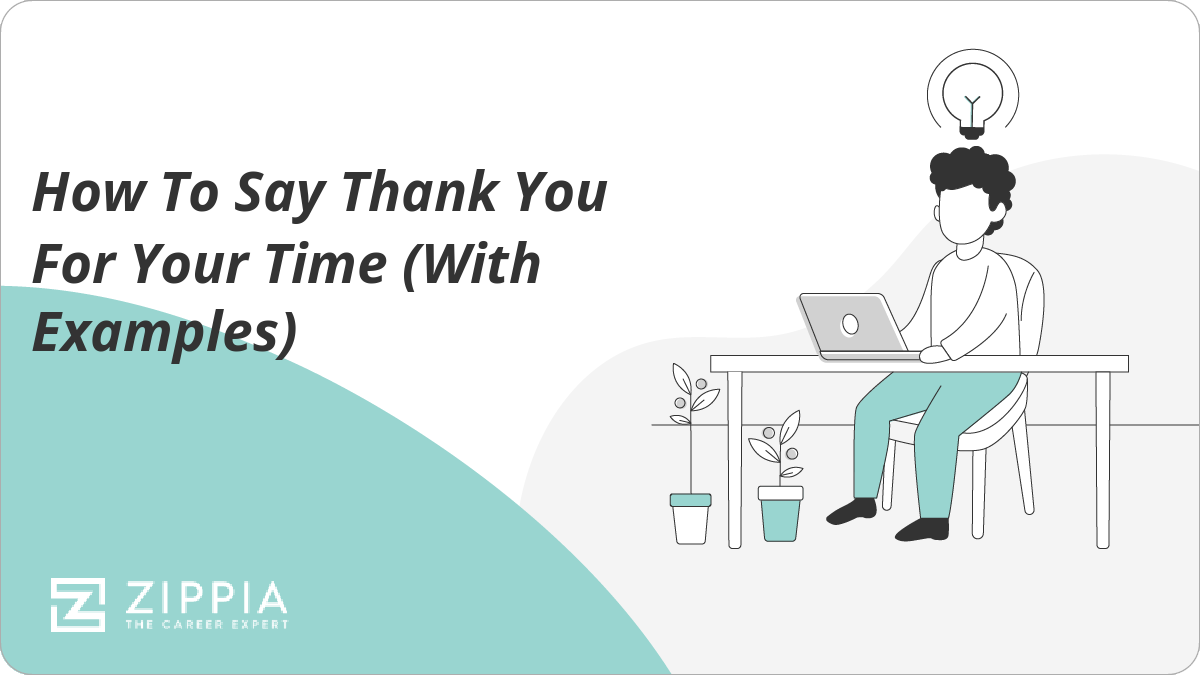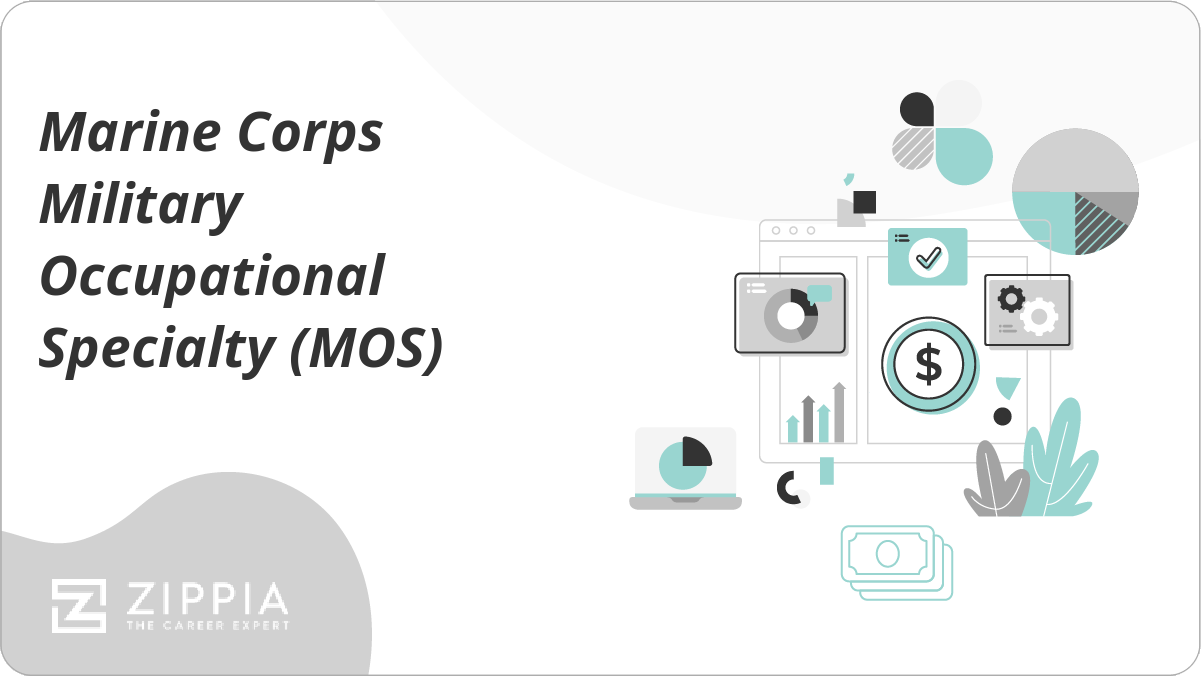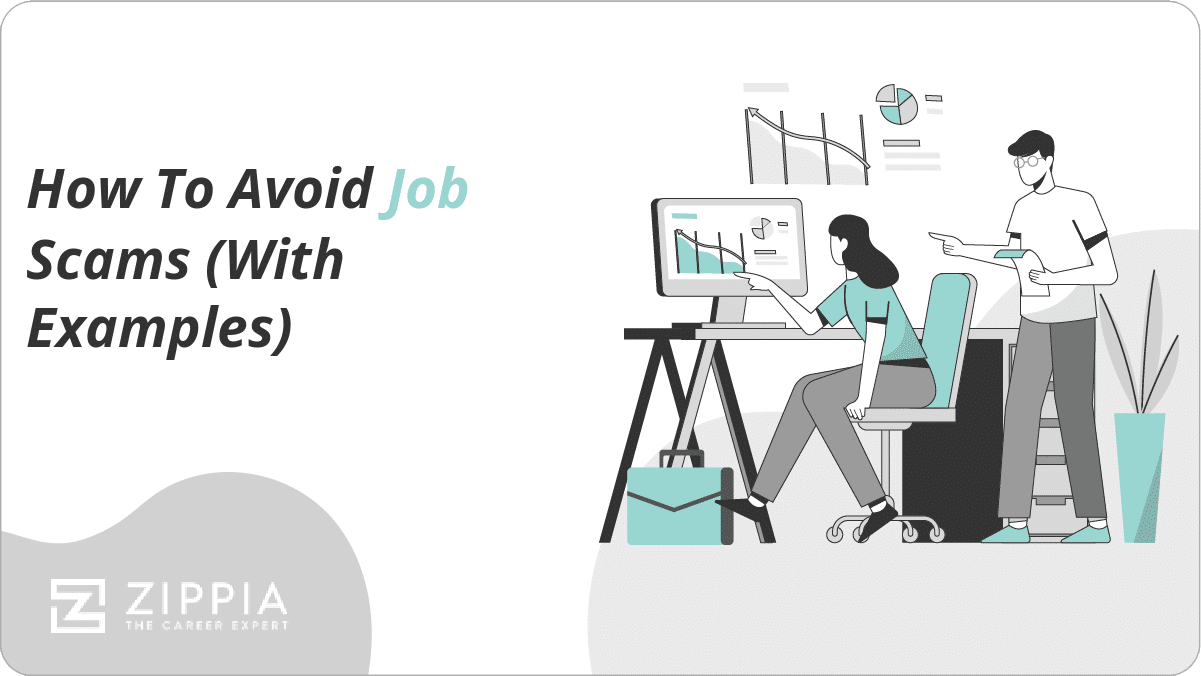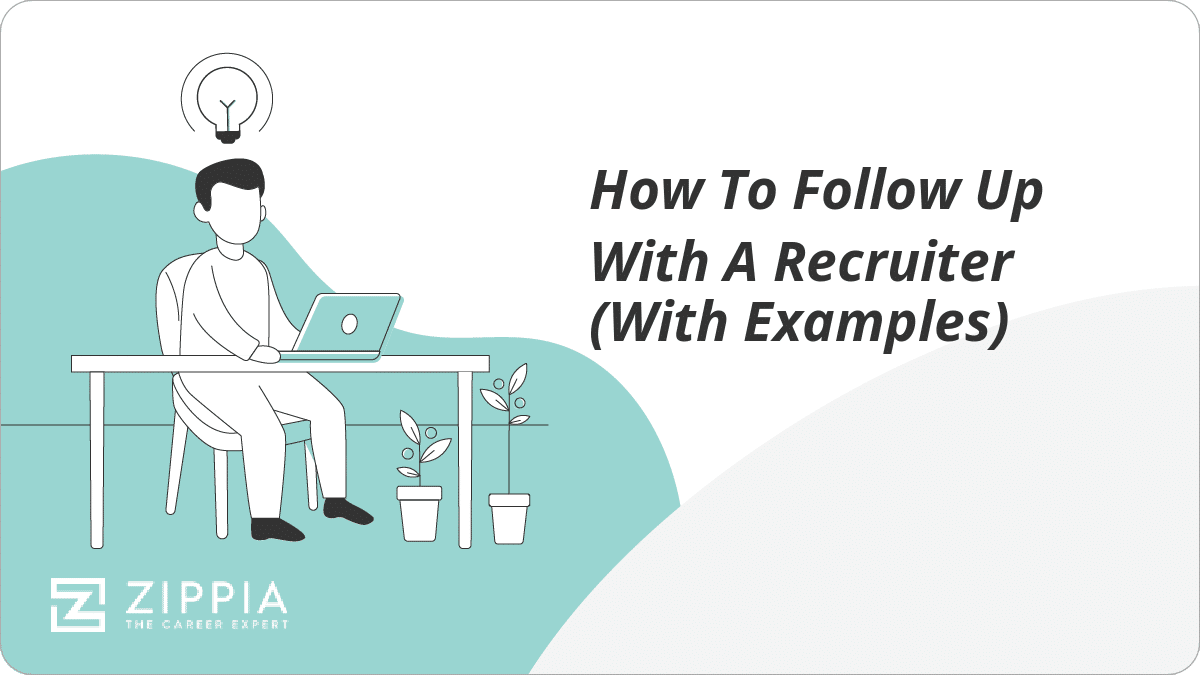- Job Application Tips
- About Me Page
- Answering Machine Messages
- What To Bring To A Job Fair
- Free Job Posting Sites
- Email Sign Offs
- Job Scams
- How Long Does It Take To Become A Doctor
- How Long Does It Take To Become A Vet
- Government Programs That Help Felons Get Jobs
- How Long Does It Take To Become A Dentist
- Relocation
- Job Search Spreadsheet
- Right To Work States
- How To Research A Company
- How To Change Careers
- What To Do If You Have No References
- Working For a Big Company Vs. A Small Company
- Writing Sample Format
- How Long Should A Writing Sample Be
- How To Get A Job Fast
- How Many Jobs Should I Apply For
Find a Job You Really Want In
It’s a common practice for employers to ask candidates applying for a job vacancy to provide professional references. However, you may find yourself in a situation where you have no relevant references to provide at all.
In this article, we’ll explain exactly what to do in such a situation, as well as what employers are looking to learn about you when they ask for references.
Key Takeaways
-
There are three types of job references: professional, academic, and character.
-
If you don’t have job references, ask a classmate, teacher, client, or another non-family member to vouch for you.
-
Talk to your references before you give their contact information to a potential employer.
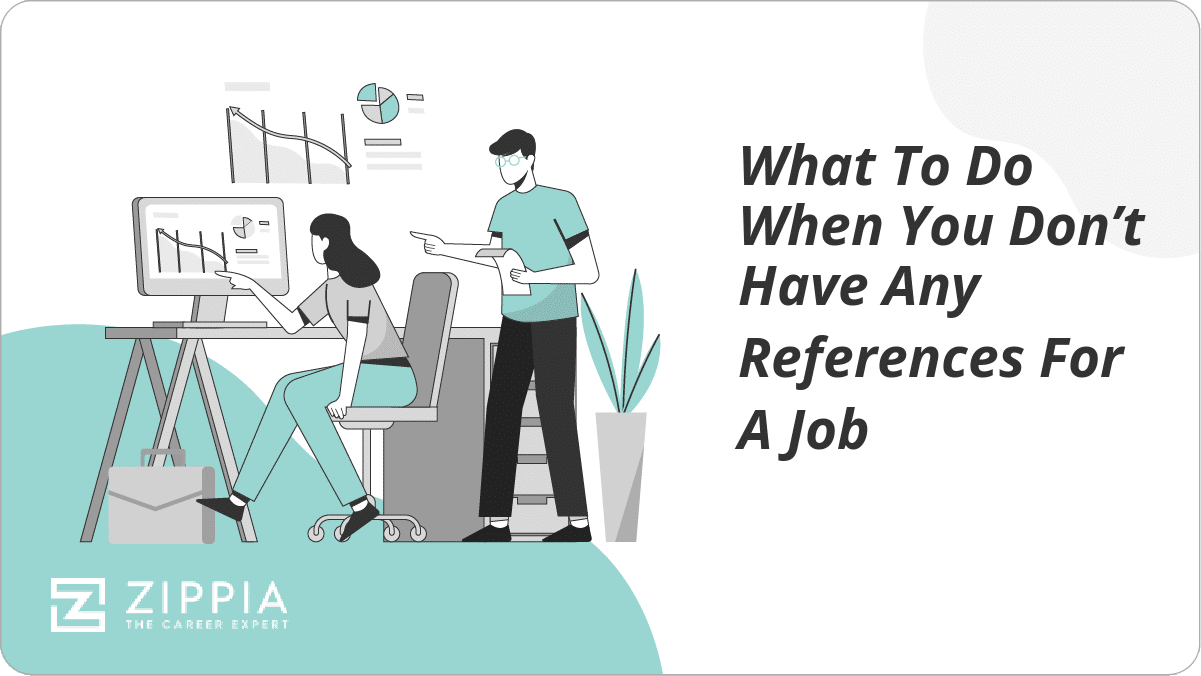
- What Are Job References?
- What to Do When You Don’t Have Any References for a Job
- Who to List as a Reference for a Job
- How to Ask a Contact to Be Your Job Reference
- Other Important Tips for When Employers Ask for Your References
- Why Employers Ask for References
- What To Do When You Don’t Have Any References For A Job FAQs
- Sign Up For More Advice and Jobs
What Are Job References?
A job reference is a professional contact who has observed and can attest to your skills, experience, and personality. Candidates often include them on their job applications to vouch for them and improve their chances of getting an interview.
When asked for your references, you should provide their contact information and ideally a recommendation letter they prepared ahead of time. Professionals also typically obtain consent from their references before including them on their job applications.
Choose From 10+ Customizable Resume templates
Zippia allows you to choose from different easy-to-use resume templates, and provides you with expert advice. Using the templates, you can rest assured that the structure and format of your resume is top notch. Choose a template with the colors, fonts & text sizes that are appropriate for your industry.
What to Do When You Don’t Have Any References for a Job
If you’re currently looking for a job and you don’t have any job references, don’t panic.
Here are some common reasons for why you may not have any professional contacts, as well as how you can solve the problem:
-
The problem: You just graduated.
Many job-seekers who just graduated college or high school don’t have many professional contacts, as they have not yet spent much time in the workforce.
However, professional references don’t have to be people that you met at an actual job.
The solution:
If someone other than a family member has observed your positive personality traits and skills in practice, then feel free to list them as a reference. Common choices include professors, sports coaches, and fellow club members.
-
The problem: You’re self-employed.
If you’ve been self-employed for a long time, then most hiring managers will understand if you don’t have any supervisors or work colleagues to list as references.
The solution:
An acceptable alternative is to speak with a trusted vendor or client and ask them if they’d be willing to vouch for your character and expertise.
-
The problem: You’re a student or recent graduate who isn’t involved in any clubs or organizations.
If extracurricular clubs or organizations weren’t your thing in high school or college, you won’t have contacts from there to use as a reference.
The solution:
You don’t have to have worked with someone for months to ask them to be a reference. Your group project team members, lab partner, or anyone else outside of your family who has seen your work ethic and how you conduct yourself in academic or professional settings can make great references.
-
The problem: This is your first job in the U.S.
If you recently moved to the United States, it’s likely you don’t have many — if any — references in the country.
The solution:
You can still use your references from the country where you were living before. You just may need to do a little more legwork to make sure your potential U.S. employers can easily get in contact and communicate with them.
-
The problem: You’ve left a job on bad terms.
Whether you were fired or you resigned in disgrace, it isn’t a good idea to go back and ask for a reference when bridges have been burned.
The solution:
Ask another former employer to be your reference, or consider asking a coworker, client, or manager you did get along with at your previous workplace to be your reference.
If these options won’t work and a company insists on contacting your previous employer, be honest about how your relationship ended, being careful to not be disrespectful or cast blame on the other person.
Who to List as a Reference for a Job
It’s a common misconception among job-seekers that employers will only accept work contacts when they ask you to provide references.
However, the truth is they’ll typically accept a variety of different kinds of people as references, as long as they aren’t family members and have observed your character and abilities.
Here is a list of all the different types of acceptable references you could provide for a job:
-
Professional references. Professional references are contacts that you made while working at a previous job.
They should ideally be people who observed your work for at least a few months.
Here are some contacts that candidates commonly provide as references:
-
Coworker
-
Hiring manager
-
Internal references (i.e. contacts from within your prospective company)
Something obvious that we should emphasize anyways is that you should avoid listing your current supervisor as your reference unless you’re close with them on a personal level and they already know that you’re looking for a new job.
Otherwise, you may get fired.
-
Academic references. Listing people that you know from your academic career is also acceptable when you’re asked to provide references, especially if you’re attending or just graduated from school.
Common options include:
-
Academic advisor
-
Classmate
-
Lab instructor
-
Teacher’s assistant
-
-
Character reference. Character references are people who know you from outside of work or school and can attest to valuable personality traits you’ve demonstrated, such as leadership, work ethic, and clear communication.
Hiring managers do tend to value these types of references lower than professional ones, but they’re acceptable to include if you don’t have other options.
Common contacts to list as character references include:
How to Ask a Contact to Be Your Job Reference
There a few key steps you need to follow before listing someone as your reference for a job:
-
Connect with them on a personal level. If you’re going to ask someone to do a favor for you, you need to first call or send an email to check up on how they’re doing.
It’s critical to be as polite and thoughtful as possible. Not just because it’s the right thing to do, but also because it may impact whether they accept your request and how enthusiastically they sing your praises if the hiring manager happens to call you.
-
Be direct and transparent. Before you approach someone to be your reference, you should prepare exactly what you want them to discuss in case they’re called.
For example, if you delivered a project that you’re especially proud of when you worked at the same company as your reference, you may want to point to that specifically as something they should bring up.
If you’re vague about what you would like your reference to talk about, then they may be forgetful and seem unconfident in your abilities when asked about them on the phone.
You should also discuss the role that you’re applying for and the key duties. This way, your reference will know what skills and traits of yours to highlight.
-
Renew your connection. Your job references may not always be people that you’ve spoken to recently. In some cases, they may be contacts as distant in the past as your high school teacher from decades ago or a childhood friend.
In these cases, you should reconnect and remind them of who you are before asking them to be a reference.
It’s useful to remind them of an achievement you’re proud of, such as an 8th-grade science project.
-
Provide them with documentation. It’s a good idea to send your reference a copy of your resume or cover letter so they have something to study and fall back on if they hesitate during any phone calls with prospective hiring managers.
-
Show your appreciation. If your contact accepts your request to be your reference, you should thank them and leave them with a positive impression before they speak with any hiring manager.
Other Important Tips for When Employers Ask for Your References
Here are some other important things to consider when a job listing asks you to provide professional references:
-
Build and maintain a professional network. It’s incredibly important to build up a strong professional network so you can avoid needing to use an article like this again in the future.
Socializing at work and attending workshops or conferences are great ways to meet professionals working in your industry.
-
Avoid using “references available on request.” A disappointingly common mistake that candidates make when applying for a job is including the line “references available on request” on their resumes.
The practice was once common decades ago, but now looks outdated on a resume and makes a candidate look out-of-touch.
It’s also irrelevant, a waste of valuable space on a resume, and a weak way to leave your last impression as employers finish reading your resume.
-
Answer questions proactively using a strong resume and cover letter. It won’t always be the case, but an incredibly compelling resume or cover letter could convince an employer to interview you immediately.
If you can impress the hiring manager enough at the start, then asking you to provide references may end up being redundant.
-
Provide a portfolio of work. Instead of providing a contact who can vouch for your abilities, you may be able to demonstrate the same credentials by providing a copy of your actual work.
This is an especially acceptable alternative if you’re a recent college graduate.
Consider providing work such as:
-
Presentations
-
Reports
-
Essays
-
Journal articles
-
Analyses
-
Why Employers Ask for References
Employers often ask for references because they reveal many important details about candidates.
Some of the top reasons why they may ask to see your references include:
-
To verify your education and work history. Some candidates lie on their resumes and cover letters. If hiring managers can see that several people are vouching for your honesty, then that helps to ease these concerns.
-
To learn about your personality. It’s hard to assess a candidate’s character and work ethic from a resume alone.
References are typically colleagues who have worked with you for a decent amount of time, so employers look to their testimonies to learn more about a candidate’s personality.
-
To check if you’re a good fit for the company. Speaking of character, employees also want to make sure that you’re the specific type of person that would fit into their work environment and culture.
Asking references on what type of person a candidate is a great way to do that.
-
To learn about your background. Employers also value references because they often provide useful general details about a candidate. For example, a reference might mention that they worked with you at a sales position.
Even though the position you’re applying to might be an unrelated field, the hiring manager will note down the fact that you probably have excellent communication skills.
What To Do When You Don’t Have Any References For A Job FAQs
-
Can you get hired without references?
No, you can’t get hired without any references in most jobs. However, you shouldn’t panic, as there are various people you can use as a reference. Always remember that a reference doesn’t have to be your previous employer!
Instead, think about anyone you know who’s an Academic reference, Character reference, or Professional reference. Not sure what we mean? Here are some examples of each:
-
Academic References. Academic advisor, professor, classmate, lab instructor, principal, guidance counselor, teacher’s assistant.
-
Character References. Sports coach, community leader, minister, neighbor, a colleague from volunteer work, anyone who you’ve helped.
-
Professional References. Mentor, former supervisor, team leader, job coach, coworker, hiring manager, internal references.
-
-
Is it bad not to have references?
Yes, it’s bad not to have any references. Remember that most listings on the job market are somewhat too highly competitive. Therefore, if your application lacks references, while three other applicants have them, your resume might not be viewed by an employer.
Remember that it’s not that you don’t have references, just that you can’t think of any right now. Odds are you’ve had at least one teacher who would recommend you or a friend you’ve done some kind of project with.
Don’t worry about how “professional” your reference is if you don’t have much job experience. Instead, find someone who will be able to paint our character, skills, and qualifications in the most positive light.
-
What do you put for references when you have none?
When you have none, what you put for references is someone you’re close to who can vouch for your character and work ethic. Odds are you’ve worked with a friend on a school project, so even if you can’t think of anything else, that person will likely recommend you.
Other examples include asking that neighbor who’d lawn you mowed or a relative that you worked for. Teachers can also be great references. Just remember that even if you don’t think you know a reference, you likely just need to open your mind to who can be a reference.
-
Yes, you can use friends as a reference. In fact, friends can be some of the best references you have because they have a deeper understanding of your character.
They can talk about a time you worked on a project together or if the two of you share any work experience. Plus, even if you’ve never worked with your friend, they can still uphold the positive aspects of your character.
For instance, let’s say you and your best friend went on a road trip last summer. The car became stuck in the mud, but your quick thinking and experience allowed you to develop a solution. Instead of having to pay tons of money for a tow truck, you were able to free the car.
Not only does this example show a determined character and problem-solving skills, but it would also be useful if you were applying to be a mail carrier or any job that involved vehicles. And, you got all that from a friend you’ve never even worked with professionally.
-
Do employers actually call references?
Yes, employers actually call references. Of course, this isn’t the case 100% of the time, but you should always choose your references, knowing that a potential employer will likely call them.
After all, employers call them to ensure they’re legitimate and see what said person would say about you over the phone. This will allow them to confirm the reference.
-
What do I do if my previous employer won’t give me a reference?
If your previous employer doesn’t give you a reference, try making a list of alternative references you can reach out to. Also, remember that even if your previous boss declines your request, it’s not necessarily because you alienated them. Often, companies can have policies against it, or your boss might simply be too busy.
However, even if you did have a bad relationship with your previous employer, you shouldn’t panic. Think about who you can ask to be your reference. Your top picks should know about your character, work ethic, or professional life. They should also be available to answer questions over the phone.
Once you have two or three people picked out, ask them if they’re willing to be your references. After all, having a positive reference is more important than having your previous employer as a reference.
- Job Application Tips
- About Me Page
- Answering Machine Messages
- What To Bring To A Job Fair
- Free Job Posting Sites
- Email Sign Offs
- Job Scams
- How Long Does It Take To Become A Doctor
- How Long Does It Take To Become A Vet
- Government Programs That Help Felons Get Jobs
- How Long Does It Take To Become A Dentist
- Relocation
- Job Search Spreadsheet
- Right To Work States
- How To Research A Company
- How To Change Careers
- What To Do If You Have No References
- Working For a Big Company Vs. A Small Company
- Writing Sample Format
- How Long Should A Writing Sample Be
- How To Get A Job Fast
- How Many Jobs Should I Apply For













